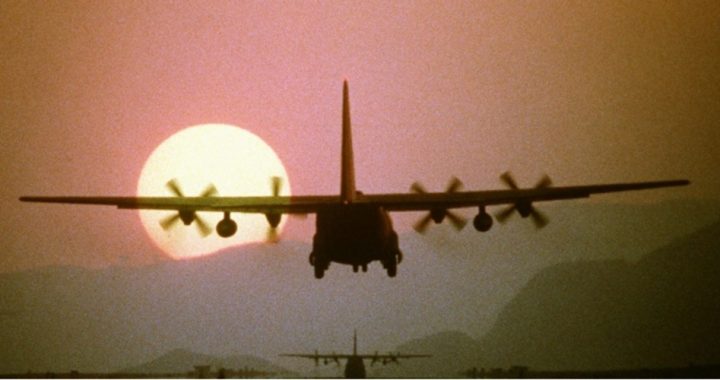
The Pentagon has accused Chinese military personnel in the East African nation of Djibouti of using powerful lasers to target and injure U.S. pilots flying out of a nearby U.S. air base.
The Chinese base is located a few miles north of Camp Lemonnier, the U.S. military facility located at Djibouti’s Ambouli International Airport. According to Pentagon reports, personnel at the Chinese facility have used high-powered lasers to interfere with U.S. flights in the area, with some U.S. pilots being injured by the tactics.
The Pentagon issued a warning to U.S. airmen “to exercise caution when flying in certain areas in Djibouti” because of “lasers being directed at U.S. aircraft on a small number of separate occasions over the last few weeks.”
According to the notice, during one particular incident, “there were two minor eye injuries of aircrew flying in a C-130 that resulted from exposure to military-grade laser beams, which were reported to have originated from the nearby Chinese base.”
Military-grade lasers beams, also known as “dazzlers,” can travel considerable distances, hitting aircraft and temporarily blinding pilots. In 2015 China’s official military newspaper the PLA Daily reported that “China has been updating its home-made blinding laser weapons in recent years to meet the needs of different combat operations.”
In a May 3 press briefing, Pentagon spokesperson Dana White called the attack a “very serious incident” that “poses a true threat to our airmen.” White said that Pentagon officials “expect China to investigate it thoroughly.”
A spokesperson for Beijing called the U.S. charges “totally inconsistent with facts,” adding that “you can remind people in the U.S. that they should pay attention to facts and not make groundless accusations.”
Military experts in China told the South China Morning Post that personnel at the Chinese facility may have been using lasers to chase off birds or disrupt spy drones, rather than trying to target U.S. pilots. “The Chinese and U.S. bases in Djibouti are really close, so one could disturb the other if the two sides don’t have a proper communication mechanism,” said one Chinese military analyst.
The 500-acre Camp Lemonnier, opened in 2001, is the only permanent U.S. military base on the African continent and hosts some 4,000 troops. The base serves as an important staging point for U.S. counter-terrorism operations, and is a regional hub for U.S. drone missions launched from other bases in the area.
China’s military began work on its own nearby 90-acre base in 2016. As reported by Newsweek.com, “China is working on a network of naval and air bases in and around the Indian Ocean as Beijing invests to create a military capable of force projection and increased global influence. The U.S. is watching its strategic rival closely, well aware of China’s superpower potential. Still, Beijing has some way to go before it catches up the the U.S., which maintains almost 800 overseas military bases worldwide.”
U.S. military experts have expressed concern recently with China’s increasing influence in Djibouti, which is dependent upon economic investment by Beijing, and the two nations have developed close diplomatic ties. Earlier this year U.S. military experts expressed their concern that Djibouti could transfer control of one of its major ports to China. Located next to China’s base, the port is the primary access to the U.S. base in Djibouti.
General Thomas Waldhauser, who oversees U.S. military operations in Africa, told a congressional panel in March that the Pentagon is keeping a close eye on China’s actions in the region. “We are taking significant steps on the counterintelligence side so that we have all the defenses that we need there,” Waldhauser said. He added that “we are not naive to think that some of the activities the Chinese are doing in terms of counterintelligence there are taking place, but it just means that we have to be cautious. We have to be on guard for that type of situation.”
The Washington Free Beacon recalled that the incidents in Djibouti “appear similar to the 1997 incident involving a Russian merchant ship that was shadowing a Navy missile submarine and fired a laser on a Canadian surveillance helicopter. The laser damaged the eyes of the Navy Lt. Jack Daly and Canadian pilot Captain Patrick Barnes near Washington state and was covered up by the administration of President Bill Clinton.”
Photo of C-130: U.S. Air Force



